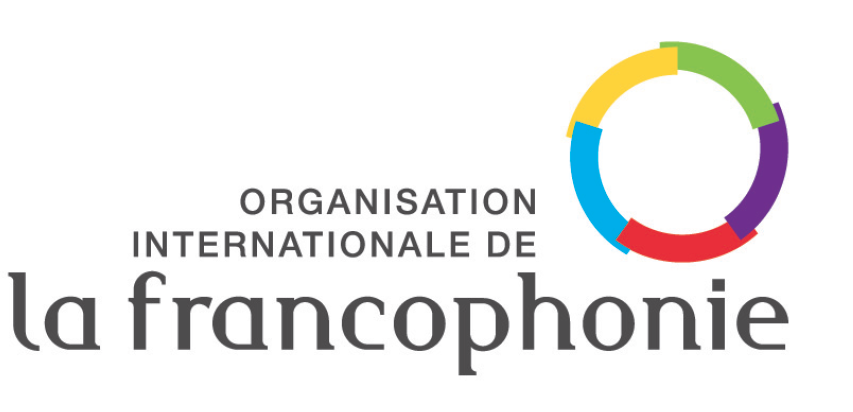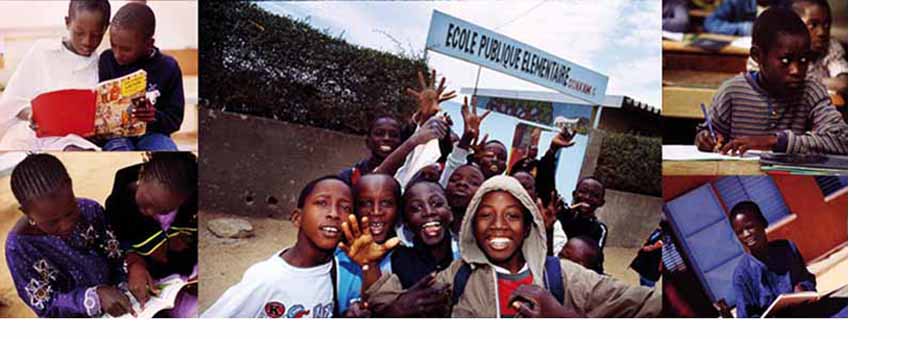Who are we ?
With the LASCOLAF experience [1] , the four institutions - the International Organization of La Francophonie (OIF), the University Agency of La Francophonie (AUF), the French Ministry of Foreign and European Affairs and the French Agency for Développement (AFD) -, through the ELAN-Africa Initiative, reiterate their partnership to support eight African Francophon countries in the implementation of bilingual education (national languages-French).
OIF: International contracting authority
With a population of more than 890 million inhabitants and 220 million French speakers around the world, the International Organization of La Francophonie (OIF) has for mission to give substance to active solidarity between the 75 States and constituent governments (56 members and 19 observers) - more than a third of the member states of the United Nations.
La Francophonie is the institutional mechanism that organizes political and cooperative relations between the States and governments of the OIF , sharing the use of the French language and respect for universal values.
The institutional mechanism of La Francophonie includes political decision-making bodies, the highest of which is the Summit of Heads of State and Government which meets every two years, and the Secretary General of La Francophonie, the keystone of this system. Since 2003, the Secretary General of La Francophonie has been Abdou Diouf , former President of the Republic of Senegal.
Multilateral francophone cooperation is implemented by the International Organization of La Francophonie and four specialized operators.
The OIF was founded in 1970 on the basis of the Treaty of Niamey (Niger). It carries out political and multilateral cooperation actions to give substance to active solidarity for the benefit of the populations of its member states and governments. It acts with respect for cultural and linguistic diversity and in the service of the promotion of the French language, peace and sustainable development.
La Francophonie has an advisory body, the Parliamentary Assembly of La Francophonie (APF).
The four specialized operators are: the Agence universitaire de la Francophonie (AUF), the international television channel TV5 , the International Association of Francophone Mayors (AIMF) and Senghor University .
Goals
The objectives of La Francophonie are recorded in its Charter adopted in 1997 at the Summit of Heads of State and Government in Hanoi (Vietnam) and revised by the Ministerial Conference in 2005 in Antananarivo (Madagascar):
- the establishment and development of democracy;
- prevention, management and resolution of conflicts, and support for the rule of law and human rights;
- the intensification of dialogue between cultures and civilizations;
- the bringing together of peoples through their mutual knowledge;
- strengthening their solidarity through multilateral cooperation actions with a view to fostering the development of their economies;
- promotion of education and training.
Missions
The missions of La Francophonie are defined in a ten-year Strategic Framework adopted by the Summit of Heads of State and Government in 2004 in Ouagadougou (Burkina Faso) for the period 2005 - 2014:
- Promote the French language and cultural and linguistic diversity;
- Promote peace, democracy and human rights;
- Support education, training, higher education and research;
- Develop cooperation for sustainable development.
Special attention is given to young people and women, as well as access to information and communication technologies.
AUF
The Agence universitaire de la Francophonie (AUF) is present on all continents, with more than 427 agents in 66 locations attached to nine offices .
Since 1989, this association of universities has been an operator of institutional Francophonie. A partner of higher education and research institutions that have chosen French as the language of instruction , it offers several cooperation programs aimed in particular at supporting research and teaching in French.
Each year, it distributes more than 2,000 scholarships as part of its mobility program. It has an annual budget of more than 40 million euros thanks to the intervention of governments, primarily France, but also Canada, Canada-Quebec, the French Community of Belgium, Switzerland and Cameroon. , not to mention many other southern states which support their universities and provide us with premises and staff.
Since 2000, the Agency has experienced an unprecedented period of
development, marked by a consolidation of its budget and a 50% increase in the number of member
establishments.
AUF today federates a
network of 779 establishments
spread over all continents, in
90 countries
, of which 55 are members of the International Organization of La
Francophonie.
France, Vietnam, Algeria and Canada are respectively the countries in which the Agency has the largest
number of members.
The development of AUF testifies to its notoriety within university circles, but also to the attractiveness of French, as a language of training and culture, on the international scene.
The Agency, whose headquarters are located on the campus of the University of Montreal (Canada-Quebec), aims to contribute to the construction and consolidation of a scientific space in French by:
- promoting scientific cooperation ;
- training future development actors ;
- supporting research and excellence ;
- sharing expertise .
MAEE
The ministry intervenes in several ways in the conduct of our relations with foreign states.
First of all, it has a mission to inform the President of the Republic and the government on the development of the international situation and the situation of foreign states. This mission is fulfilled by the embassies and consulates of France abroad which, from various sources of information, send to Paris correspondence of a political, economic, cultural or cooperation nature.
Its mission is then to design France's foreign policy. Based on the information collected by diplomatic and consular posts, the ministry proposes the orientations of our international policy.
He leads and coordinates the international relations of France. The ministry represents France to foreign governments and international organizations. This is how the Ambassador is the representative of the President of the Republic to the authorities of his country of residence. He negotiates on behalf of France, signs agreements and takes all steps in its name. The Ministry of Foreign Affairs coordinates the actions of other ministries with regard to the exterior (this is how the ambassador represents the government on the spot, and therefore all the ministers who make it up).
Finally, it is responsible for protecting French interests abroad and providing assistance to French nationals outside the territory. This latter mission is essentially assumed by consuls and consular posts.
AFD
A public financial institution, the French Development Agency fights against poverty, supports economic growth and participates in the promotion of global public goods in developing countries, emerging countries and overseas.
It acts under the control and in close collaboration with its supervising ministries: Ministry of Foreign and European Affairs; Ministry of the Economy, Industry and Employment; Ministry of the Interior, Overseas Territories and Territorial Communities and Immigration.
Thanks to the wide range of financial instruments that it has been able to develop and enrich, AFD supports the public authorities, the private sector and local association networks for the implementation of very diverse economic and social projects. It thus operates in five continents and overseas.
Its actions in favor of economic growth and preservation of the environment fall directly within the framework of the Millennium Goals (MDGs). These priority development goals were defined in 2000 by the United Nations, aiming to reduce poverty in the world by half by 2015.
AFD also contributes to the preservation of global public goods and can respond to crisis situations. It also develops financial and intellectual partnerships with other donors and strives to defend French influence in the development sphere.
It implements the orientations defined within the framework of the Interministerial Committee for International Cooperation and Development (Cicid), chaired by the Prime Minister.
[1]
Languages of schooling in basic education in
French-speaking sub-Saharan Africa.





